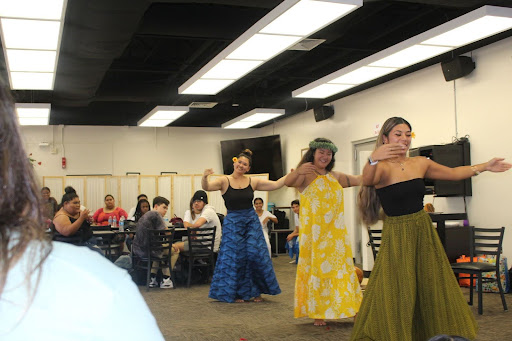Social Media Changes Society, Brain Functions
May 14, 2019
When you look down the halls of Radford, there is one thing that almost everyone is using: their phone. Despite the school policy that students should not use their phones during school hours, many choose to risk having their phones taken away to text, make phone calls and use their social media apps.
Ninety-five percent of teenagers use the internet, and 81 percent of them use social media. And that is just the way our society works now. As teens are falling asleep at night, they hear a buzz, the screen of their phone illuminates, and they reach to read the notification. In the morning, their eyes flutter open awakening them from their deep sleep, and they habitually scroll through twitter. Throughout the day, they are texting their friends back and forth, as well as many of their peers surrounding them with their eyes practically glued to their phones.
More than half of American teens say they spend too much time on their phones and most of that is overdone on social media. Many teens claim that they can survive easily without their phone, but the blunt reality is that adolescents are on it much more than necessary. They use it to communicate with friends, present themselves on social media, research things for school work, or find amusing memes. Our society relies on smartphones a lot and because of that, experts are starting to understand how it changes our brain.
Americans on average now spend more than five hours a day scrolling, swiping, and typing. While that may seem like normal behavior, it may be problematic or pathological internet use, which is characterized by an individual’s inability to control their use of the internet. Believe it or not, Internet addiction disorder is currently becoming a serious mental health issue, and it impairs academic performance, social interaction, occupational interest, and behavioral problems.
While social media is seen as a simple habit that adolescents engage with, the developing brain is sensitive. Minimal interactions on social media have the potential to drastically change their mindset.
The ventral tegmental area is a group of neurons located on the floor of the midbrain. It is one of the dopaminergic areas of the brain, releasing those neurons to other areas of the brain. In simple terms, it monitors social needs and releases dopamine when we achieve success.
Research shows that social media has the ability to trigger a dopamine high. This may sound beneficial, getting a little boost of happiness when that person you like double tapped your photo, but as the ventral tegmental area monitors social needs, other online interactions can affect you negatively.
A study published in Psychological Science investigating the neural and behavioral responses to social media on adolescents found that “viewing photos with many (compared with few) likes was associated with greater activity in neural regions implicated in reward processing, social cognition, imitation, and attention.”
In Center Surveys, 75 percent report having at least one active social media profile, and 51 percent report visiting a social media site at least daily.
“I’d say the majority of teens are addicted to social media,” Camille Ladd (10) said. “I think when people are bored the first thing they go to is instagram or other social media. They make it fun so a lot it is kind of addicting.”
A large amount, 45 percent, believe social media has neither positive nor negative effect on people their age. Meanwhile, 31 percent say social media has had a mostly positive impact, and 24 percent describe its effect as mostly negative.
Zyanna Dewar (12) looks at social media as a way to express herself and stay connected with those close to her. She often posts things that she enjoys, like her pets, her family, and pictures with close friends and family.
“I think social media has a positive effect,” Dewar said. “A lot of girls can hype each other up and boost confidence and people can be more connected even when they move so they can stay in touch with their friends.”
Diamonique Kyler (11) is a frequent user of social media, and loves instagram because of how she can find posts she can relate to and flaunt the highlights of her life. She does, however, see the downfalls of social media that can occur.
“I think social media has both negative and positive effects on society today,” she said. “Negative because it points out your insecurities and flaws and allows others to point them out as well, but positive because it helps you keep in contact with people that you probably would never connect with in your everyday life.”
Luckily, Kyler is a confident person who is happy with herself and the way she is presented online.While some find social media to be a fun, friendly place, others are perfectly fine staying away from it. However, the overall increase in internet usage has evidently changed society, emotions, and even brain function. It is up to individuals to decide if this increase will have a positive or negative effect on their way of life.








